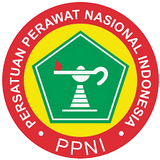The Determinant Factors Affecting Mother's Behavior in Receiving the Covid 19 Vaccine for Children Aged 6 - 12 Years in the Work Area of the Mukomuko City Health Center in 2022
Abstract
The World Health Organization (WHO) has declared the COVID-19 or corona virus outbreak to be a global pandemic. children are at risk of contracting COVID-19 due to their high activity and tendency to group together (Pradana et al, 2020). In addition, children's immune function is immature, and children are susceptible to respiratory system infections (Nurhidayah et al, 2021). Vaccination against COVID-19 is one of the government's breakthroughs to fight and deal with COVID-19 in the world, including Indonesia. The purpose of this study was to determine the Determinant Factors Affecting Mother's Behavior in Receiving the Covid 19 Vaccine for Children Aged 6 - 12 Years in the Working Area of the Mukomuko City Health Center in 2022 This type of research is a descriptive quantitative study using a Cross Sectional approach. Sampling used a purposive sampling technique with a total of 81 respondents who had school-age children 6-12 years in the working area of the Mukomuko City Health Center. The independent variables in this study were knowledge, perceived seriousness, cues to act, perceived benefits, perceived obstacles. While the dependent variable is Mother's Behavior in Receiving the Covid 19 Vaccine. The statistical test in this study used the chi-square test. The results of the study showed that there was a relationship between knowledge, cues to act, perceived benefits, and perceived obstacles to Mother's Behavior in Receiving the Covid 19 Vaccine for Children Aged 6-12 Years with a p value of 0.000 <α = 0.05. While there is no relationship between perceived vulnerability/seriousness and mother's behavior in receiving the Covid 19 vaccine for children aged 6-12 years.
Downloads
Copyright (c) 2023 Student Scientific Journal

This work is licensed under a Creative Commons Attribution-NonCommercial-ShareAlike 4.0 International License.







